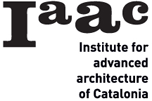Gonzalo Delacámara \\ Nov 29th, 2014
Football (soccer for North Americans) plays a paramount role in our culture. Yet, there is deep reluctance, when not embarrassment, among the intellectual class to acknowledge that role and the enjoyment of this spectator sports. The only approach is either from hesitancy or disregard, when not cynical critique. Some would argue that illiteracy of some professional footballers makes it evident that reluctance between football and literature is reciprocal though. Fever Pitch or Soccer in Sun and Shadow are possibly exceptions, if remarkable ones.
Suspicion between architecture and economics is also quite apparent in practice. Most economic analyses lack a proper spatial research, even within the scope of spatial economics or economic geography. Urban and architectural design often lacks an in-depth acknowledgement both of macroeconomic and microeconomic variables. Lost in translation, both disciplines are doomed to contribute to marked trends of unsustainable production and consumption.
From semiotics we have learnt that for fluent communication to happen one needs a code (a common language). That is only a necessary condition, though, not a sufficient one. Communication also demands self-awareness, empathy, and an intellectually honest self-expression. Economics has too often been biased towards finance. In turn, the frontier between architects and developers has been blurred in many countries, at different points in time, as part of somewhat dangerous liaisons. This, among other things, has hindered effective dialogue.
Part of the ongoing and long-lasting world financial and economic crisis is explained by those two phenomena. Real-state bubbles and the sophistication of unregulated financial markets are both at the roots of the crisis and, at the same time, a consequence of the predominance of developers over architects and financial analyses over economic assessments. Likewise, the credit crunch is both a reduction in the general availability of loans (or credit) but also a pervasive lack of trust between some economic agents and others. Credit, as it is well known, stems from the Latin word crēditus, which shares etymological root with the verb crēdere. A financial crisis actually starts when one suddenly finds out that little of what seemed normal was actually normal. The US author Don Delillo coined an eloquent expression in his novel White Noise that also applies to the collective fiction that leads to a financial crisis: “spiritual surrender”.
Being here is a kind of spiritual surrender. We see only what the others see. The thousands who were here in the past, those who will come in the future. We’ve agreed to be part of a collective perception. It literally colors our vision. A religious experience in a way, like all tourism.
Of course, when leaving that “shared hallucination”, as Bloom would say, or what Shiller fortunately called “irrational exuberance”, one does not give credit anymore, no one ever believes again.
Building a new language, fostering a more fluent communication, is as demanding as exciting, is it not? This requires exploring the emergence of wider spatial analyses in design, going beyond architecture and urbanism as a mere symptom of globalization. This entails increasingly committing to consider the wider context and factoring in additional variables. Addressing economic, social, environmental, infrastructural, regulatory, and political or identity concerns requires re-examining tools and assessment frameworks.
Therefore, architects, designers, urban planners seem impelled to explore areas beyond their conventional technical, formal, aesthetic, and social palettes. A mutual recognition of interdependencies seems essential: whilst almost everything that happens in a city (including constraints for architecture) is determined by the wider economic context, the economic outcomes of urban development are of paramount importance.
As an illustration the emergence of ecosystem-based management approaches, new planning tools, green infrastructures, etc. is not necessarily part of a rational choice but rather of a logical need: meaningful stakeholder engagement, a deeper sense of citizenship, transparency and accountability demands, policy coordination, etc.
Planning and design set rules and guidelines that influence the level, scale and pattern of activity. Its ultimate role is actually to foster a balance of social, environmental, and economic factors that meets the needs of current and future generations. In so doing one necessarily faces trade-offs, in other words, any planning design both entails benefits and costs. By ignoring this, it is quite easy to work on banal projects, to blur the outlines of the role of the architect.
In his Autobiographical Notes, Albert Einstein explained that the strength of a discipline is not the result of its internal consistency but rather of its ability to dialogue with others.
As part of the assignment of this module on Economics of Sustainability please publish your own post. You can reflect on the basis of an illustrative narrative, at whatever spatial scale (object, building, city, region, the World…) or you can simply write a brief essay (around 2,000 to 3,000 words) at a more conceptual or theoretical level. In any case, please show if economic analysis has widened your scope as an architect and in what sense. The two following questions should help you out as an outline. You don’t need to address them necessarily. Take them just as an inspiration.
To what extent can design practices have a meaningful, proactive, and transformative impact on driving factors that shape current urban realities or the relationship between urban and rural areas?
Can you think of any example in which either the wider economic performance of a country, a region or a city has been a limiting factor for architecture and urbanism or architectural and urban design decisions have hampered or promoted socioeconomic development?


